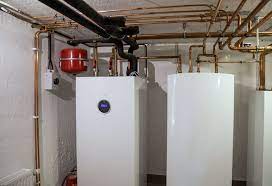Using the increasing requirement for sustainability as well as efficiency, the usage of heat pumps has become a popular option to classic heating system techniques. Heat pumps have revolutionized the way you use power in heating and cooling our homes, offices, and properties. Although traditional furnaces or central heating boilers burn energy to create heat, heat pumps exchange heat in one location to an additional making use of electrical power, leading them to be environment friendly and price-efficient. In this website, we explore the effectiveness, benefits, and disadvantages of heat pumps that will help you make an informed heating system determination.
Just what is a Heat Pump?
heat pump (värmepump) are cooling and heating methods that are designed to move heat between the in the house and outdoors. They prefer a refrigeration routine to advance heat externally to the inside of a constructing in the winter months along with the complete opposite throughout the summer months. In winter, a heat pump soaks up heat through the exterior air and moves it inside, while in summertime, it takes up inside heat and moves it outdoors, providing temp management and luxury throughout the year.
Benefits of Heat Pumps
Heat pumps have several advantages which may have made them preferred among homeowners and property builders. To start with, they are power-efficient and will preserve up to 50Percent in home heating costs when compared with traditional home heating methods like furnaces or boilers. Moreover, heat pumps are functional and might be placed in any residence, irrespective of sizing or area. They provide not only heating but in addition air conditioning, dehumidifying, and oxygen filtering, which makes them an all-in-1 remedy for inside comfort and ease requirements. And finally, heat pumps have a longer life-time and so are a lot less at risk of malfunctioning, with suitable installation, upkeep, and maintenance.
Negatives of Heat Pumps
When heat pumps have numerous benefits, they may have some negatives which could decide if they are appropriate for your heating system demands. One commonly recognized disadvantage is that they need electrical power, that may be a concern in areas with good electric power rates. Additionally, heat pumps require outdoor space to install, which can be minimal in a few urban areas. Finally, heat pumps call for appropriate sizing, installation, and upkeep for optimal functionality, which is often pricey and time-ingesting.
Varieties of Heat Pumps
Heat pumps are available in three types: oxygen-supply, floor-provider, and drinking water-provider heat pumps. Air-resource heat pumps are the most typical, and they use exterior oxygen as his or her heat resource. Floor-provider heat pumps, otherwise known as geothermal heat pumps, use the ground as his or her heat supply, while drinking water-provider heat pumps work with a normal water supply such as a lake, river, or well. Soil-supply and water-source heat pumps are more effective but can be more expensive to set up and keep.
Bottom line:
Heat pumps have revolutionized the way you heat and funky our houses and properties, because of their electricity-effective, eco-friendly, and versatile modern technology. Their many benefits and number of downsides make them suitable for anyone who would like to save on heating system expenses minimizing their carbon footprint. Simultaneously, home owners and property builders should consider the kind of heat pump that best suits their heating needs, budget, and location. With proper sizing, set up, and servicing, heat pumps may last as much as twenty years and offer inside comfort and ease throughout the year. Hopefully this information has really helped you realize the effectiveness, advantages, and downsides of heat pumps and make an educated determination when choosing your heating system.



